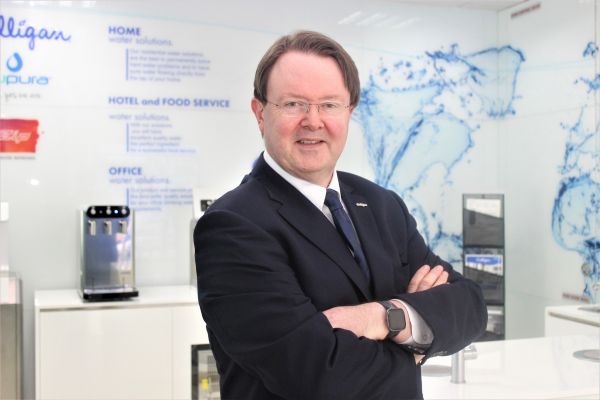Berlin-based Urban Sports Club was launched in late 2012 to offer a more flexible sports and gym membership option.
Since then, USB has grown tremendously through Europe. Through the startups flat rate membership for individuals and companies, users can access over 50 types of activities – including yoga, swimming, climbing, gyms, and team sports – at more than 7,000 venues in Germany, France, Italy, Spain, Portugal, and soon the Netherlands.
Below we interview Urban Sports Club co-founder Moritz Kreppel about how he started up, new trends in fitness, and what the future holds for the startup.
Tell us about your background, and how you came to found Urban Sports Club.
Benjamin Roth, my co-founder, and I met working as consultants in Frankfurt. As consultants, we invested all of our energy into improving other people’s businesses, but we aspired to build something of our own. We travelled a lot for work and were both interested in keeping active while doing so. We agreed it would be great to have the ability to work out, swim, and play tennis or football in different gyms or clubs depending on the city, our workload, and our personal preferences, but the options were pretty limited.
This led us to develop the idea for a flat rate fitness offering a variety of sports and wellness options. Benjamin had already been building up his own startup – a platform to organise football matches – but the market wasn’t ready and it failed. Luckily, this loss for the football world proved to be a win for us — we partnered up and used the previous platform to create our MVP for Urban Sports Club.
Can you explain briefly how Urban Sports Club works?
Urban Sports Club offers a flexible sports flat-rate featuring more than 50 types of activities. Through one membership, it’s possible to combine fitness, yoga, swimming, climbing, team sports, wellness and more. Furthermore, members can check-in and train at more than 7,000 partner venues in Germany, France, Italy, Spain, Portugal, and, following our merger with OneFit, soon the Netherlands.
Members across Europe can train in our ever-growing list of countries (more to join this year) with one membership and no extra fees. You shouldn’t have to adapt your daily life to your workout routine; your workout routine should easily fit into your day-to-day. Our flexible membership invites you to discover something new on your own or with your colleagues and friends.
You decided to offer corporate fitness programs in addition to private memberships. Why is that?
More and more employers and insurers realise how important health care and company sports are for their employees. People are not only healthier, happier, and more productive, but they also enjoy attending training sessions with their colleagues. This greatly benefits the team spirit within the company. Companies offer our membership to strengthen their employer brand and attract candidates, which makes us really proud.
What was it like starting up?
In the beginning, Benjamin and I bootstrapped. For two years, we lived off the money from our previous jobs and invested it in our startup. We knocked on studio and potential partners’ doors, pitching our idea via a poorly-designed Powerpoint presentation. Our paper member lists were far from practical and our logo far from beautiful, but we needed to get out there and throw ourselves into the market. We even cut out the first member cards by hand – illustrating our true lack in crafting skills.
During this time, we had a lot of ups and downs. It was a challenge to convince the first paying members, and we missed a lot of targets we set for ourselves. But we kept going, and it paid off. After two years we decided to take investors on board and secured early-stage funding. Through constant improvement and iteration, we gained more partners and members.
By 2016 we broke-even, but nevertheless decided to expand. We’ve since merged with several competitors and have integrated the teams. It’s great to see all that has evolved from our initial idea and the great international team it has brought together!
How has the fitness industry been changing in recent years?
The health and fitness industry has been growing annually for the last couple of years and shows no signs of slowing down. This is fueled by a number of factors. New studios and fitness trends play a part, but the innovations made possible thanks to technology have a huge impact.
Streaming classes for example: You might think people who stream exercise classes online or via an app at home don’t train at their local yoga studio or gym, but recent studies show the opposite is true. Virtual exercisers typically maintain a membership at a studio or on a platform as well. Boutique fitness studios are also increasingly popular and flat-rate sports memberships increasingly attractive. Platforms like Urban Sports Club bring this supply and demand together. Further contributing to industry growth is employers’ and insurers’ greater interest in covering health or sports membership costs. Finally, health food, wearables, and smart devices that track activity are becoming more trendy.
What are the most popular types of sport among your members?
We see clear preferences in activities — most are drawn to fitness, functional training, swimming, and yoga. While women prefer yoga or Pilates, men tend to do more gym workouts. Our trend report for Germany also reveals seasonal preferences. For example, people become more active in January, taking advantage of the winter options like ice skating. Similarly, stand-up paddling, wakeboarding, and canoeing (or surfing in Portugal) are popular in the summertime.
You recently launched a new WorkOUT Life Balance Award. Can you explain that?
This year we decided to launch our first WorkOUT Life Balance Award in Berlin. Companies have seen that employees who do sports and take time to relax and/or meditate are happier, more creative and more productive at work. For the WorkOUT Life Balance Award, we’ve brought together an independent jury of eight people who will choose four companies that share our vision and support their employees’ pursuit of a healthy and active lifestyle. Companies can apply until October 10th, regardless of size and whether they are Urban Sports Club customers.
You also offer a program called Urban Sports League – can you tell us more about that?
Our Urban Sports League has existed for almost as long as Urban Sports Club itself. Through the league, company teams compete against each other in weekly soccer games that lead to a final competition event in Berlin in summer 2020. We’re the largest company football league in Germany with about 80 teams participating, and we are constantly exploring new sport options. This summer, we organized a Beach Volleyball League and have received great feedback: employees enjoy playing together and networking while companies benefit from the team building and employer branding. It’s a win-win for both.
What will your recent merger with OneFit mean for your company?
We’re happy OneFit and Urban Sports Club are now one team on the same mission to inspire people to live an active and healthy life. We are stronger together, especially in countries such as Spain and Germany where we were competitors. We saw that we were a good fit right from the beginning when Benjamin and I started talking with Serge an Camille, the two founders. Their history is similar to ours, by the way. We are now profiting significantly from our mutual expertise. For our members this merger means even more variety and more flexibility in the future.
What does the future hold for Urban Sports Club?
We want to continue growing, in every respect. This means improving our product for members and partners to provide Europe’s most flexible, most versatile sports and fitness plattform. We will continue developing our app, adding community features so members can team up with friends or coworkers to do sports, and providing a more personalized offer, tailored to each member’s needs. We don’t yet have nutritional guides, health food, wearables, or sportswear, but this would be a logical extension. We are looking for a holistic approach and a one-stop-solution.
Our Urban Sport League for football and volleyball will also expand in the coming years, and we would love to bring the concept to our other countries. To achieve these goals, we will continue to grow our team across Europe, and Benjamin and I will continue to focus on building an employee-centric company culture. We want to create an office culture built on trust, since we believe this is the only environment that allows an individual’s full potential to truly unfold. Every employee should actively participate in our company growth and be able to see how they contribute to our overall success. As we scale, we will continue to support each other, challenge each other, and stand up for each other. Our aim is to inspire people to lead an active and healthy life – and we really mean it!






Recent Comments